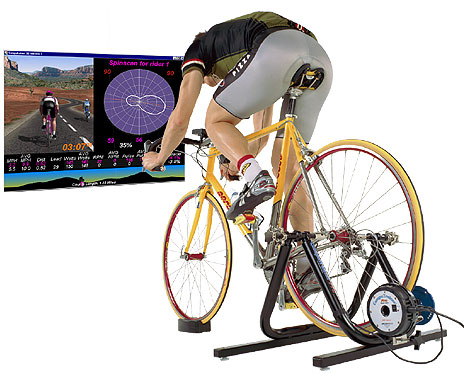Almost from the beginning of time, people have been looking for a fountain of youth, or at the very least a magic potion that can keep you feeling and looking forever young.
The potions usually come in a bottle or a jar — or from plastic surgery — but as it turns out, we've been searching in the wrong places.
Instead of running to the nearest outpatient center for plastic surgery or to the store to buy a "potion," we should be looking no further than our running shoes and workout clothes.
According to new research published in the
American Journal of Physiology,
1the best way to stay young is to simply pick up your feet and start exercise training. The training triggers mitochondrial biogenesis, a decline of which is common in aging. This reverses significant age-associated declines in mitochondrial mass, and in effect, stops aging in its tracks.
This is not the first time researchers have linked exercise to mitochondrial changes. A 2011 review in
Applied Physiology, Nutrition and Metabolism2 points out that exercise induces changes in mitochondrial enzyme content and activity, which can increase your cellular energy production and in so doing decrease your risk of chronic disease.
Aside from impacting your skeletal muscle and fat tissue, researchers noted that exercise induces mitochondrial changes that may also benefit your liver, brain and kidneys. The mitochondria is the "power plant" of your cells, responsible for generating the energy that drives all metabolic functions.
Increasing mitochondrial activity is extremely important because free radicals, which are toxic byproducts of metabolism as well as exposures to chemicals, pollutants and other toxins, can overwhelm your body's defenses, leading to oxidative damage to cells and tissues that can destroy cellular proteins, lipids and DNA; this process often leads directly to the loss of mitochondrial function. In the long-term, irreversible damage in the mitochondria can occur, leading to:
- Impaired ability to utilize carbohydrates and fat for energy
- Insulin resistance
- Lower threshold for physical exercise
- Excessive weight gain
- Accelerated aging
At least two additional studies, one in the
Journal of Applied Physiology3 and the other in Neuroscience,
4 also showed that exercise induces mitochondrial biogenesis in the brain, with potential benefits such as reduction or reversal of age-associated declines in cognitive function and helping to repair brain damage following a stroke, respectively.
Make no mistake — virtually all forms of exercise are beneficial, provided you're challenging yourself without overdoing it. Overdoing it, particularly with long bouts of traditional cardio, can actually damage your mitochondria and should be avoided. According to fitness expert Ori Hofmekler
"When done chronically, it [aerobics] causes accumulated oxidative stress in the mitochondria with increased risk of oxidative damage. And when chronic aerobic overtraining comes along with inadequate nutrition (such as with those dieters who obsessively run on a treadmill to burn excess calories they get from a bad diet) the results could be even worse...
The combined effect of bad nutrition with bad training can be extremely destructive, and may lead over time to irreversible damage in the mitochondria along with a total metabolic decline."
The end result is not to shun all forms of aerobic exercise, but to learn how to do it wisely. This brings me to my most preferred form of anti-aging exercise, which is Peak Fitness, or high-intensity interval training. High-intensity interval-type training boosts your body's natural production of human growth hormone (HGH), a synergistic, foundational biochemical that addresses the serious muscle loss and atrophy that typically occurs with aging.
Your production of vital human growth hormone increases by up to 771 percent during a Peak Fitness workout because you are stimulating your fast muscle fibers, which are rarely used during most exercise programs. The higher your levels of growth hormone, the healthier and stronger you will be. Once you hit the age of 30, you enter what's called "somatopause," at which point your levels of HGH begin to drop off quite dramatically. This decline of HGH is part of what drives your aging process, so maintaining your HGH levels gets increasingly important with age.





